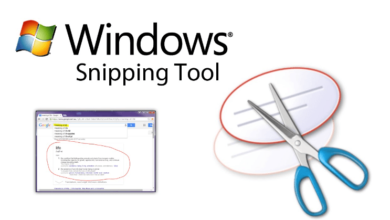The Impact of High-Quality Data Annotation on Business Intelligence

The function of data annotation is more important than ever in today’s data-driven corporate world. The rigorous process of labeling and categorizing data to ensure its accuracy and relevance is known as data annotation. This article investigates how high-quality data annotation improves the effectiveness of business intelligence.
The precision and reliability of data analysis are influenced by the quality of data annotation, which enables organizations to make informed decisions, obtain competitive advantages, and adjust quickly to changing market dynamics. This article will explore deeper into the complex influence of precise data annotation on business intelligence in the sections that follow.
Understanding Data Annotation
Data annotation is the systematic addition of contextual information to raw data in order to make it more understandable and valuable. It entails labeling, tagging, or categorizing data items in order to provide structure and meaning to unprocessed data. Data annotation is especially important for training machine learning models and artificial intelligence systems since it assists algorithms in recognizing patterns and correlations in data.
The correctness and consistency of those annotations are critical given that they have a direct effect on the first-class of data analysis and, therefore, the effectiveness of enterprise intelligence. In essence, records annotation is the inspiration for turning facts into actionable insights and making informed choices.
How High-Quality Data Annotation Impacts Business Intelligence?
In numerous ways, high-quality data annotation influences the effectiveness of business intelligence:
Improved Data Quality
High-quality data annotation solutions play an important role in improving data quality in the context of business intelligence. Data annotation services ensure that information is not only accurate but also consistent by methodically labeling and categorizing data. This precision, attained by thorough data annotation practices, results in cleaner, error-free data.
As a result, greater data quality reduces discrepancies. It increases total data trustworthiness, establishing the foundation for robust and dependable business intelligence analytics, which, in turn, assists organizations in making well-informed decisions.
Read also Redefining Advertising Strategies with White Label Facebook Ads
Enhanced Data Analysis
High-quality data annotation results in improved data analysis. Data annotation services provide accurate and consistent data labeling and categorization. It allows organizations to identify intricate patterns, correlations, and trends within their datasets.
This accuracy converts raw data into usable insights, allowing for more accurate predictions and informed decision-making. Organizations may find hidden possibilities and successfully solve difficulties by exploiting these meticulously annotated datasets, thereby reinforcing their competitive advantage in an ever-changing market context.
Faster Decision-Making
A significant advantage of high-quality data annotation is faster decision-making. Data annotation services enable businesses to make faster and more informed decisions by providing real-time insights and up-to-date data. This decision-making speed is crucial in today’s fast-paced business climate when quick answers to market shifts and emerging opportunities are critical for success.
Data annotation accelerates decision-making by ensuring that decision-makers have access to the most current and relevant information, allowing organizations to remain agile and responsive in a competitive landscape.
Increased Business Agility
Increased business agility is made possible by high-quality data annotation, including image annotation services. Image annotation company are critical in quickly adjusting to changing consumer needs and market circumstances. They let businesses use the power of visual data by giving insights from photographs and videos.
Companies can alter their strategy, goods, and services in response to changing consumer preferences and developing trends by quickly incorporating these insights into decision-making processes. This adaptability enables organizations to remain competitive and exploit opportunities, resulting in long-term success in a volatile market environment.
Personalized Customer Experiences
Another important way that data annotation influences business intelligence effectiveness is by providing personalized client experiences. By categorizing and labeling data relevant to client interactions, high-quality data annotation services can help organizations understand customer preferences, behavior, and needs.
This thorough information allows businesses to regulate their merchandise, services, and marketing activities to match the expectancies of character clients. As a result, organizations can improve consumer pleasure, foster long-term connections, and foster improved patron loyalty, all of which are crucial standards for lengthy-time period fulfillment in a modern-day aggressive industry.
Conclusion
To sum up, the importance of high-quality data annotation for business intelligence cannot be emphasized. Data labeling and categorization that is accurate and consistent underpins the dependability and effectiveness of data analysis, resulting in informed decision-making and a competitive advantage. Image annotation services, for example, not only improve data quality but also speed up decision-making and increase company agility. It enables organizations to respond quickly to market upheavals, adapt to shifting client needs, and ultimately prosper in the ever-changing digital age context. Investing in data annotation is an investment in data-driven success in the future.




